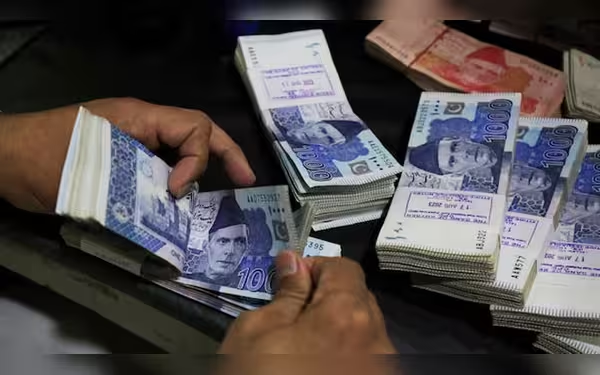Thursday, July 4, 2024 05:44 PM
Mixed reactions to budget impact on economy and population
- Budget focuses on taxation and development spending, neglecting key sectors
- Concerns raised about growing federal deficit and impact on middle class
- Missed opportunity for comprehensive reform and addressing critical economic challenges
 Image Credits: geo
Image Credits: geoThe recently announced budget sparks mixed reactions due to its focus on taxation and development spending, neglecting key sectors like property and agriculture. Concerns arise about the growing federal deficit, impact on the middle class, and missed opportunities for comprehensive reform.
The recently announced budget has sparked mixed reactions among citizens and experts, with concerns raised about its impact on the economy and the general population. The budget primarily focuses on taxation and development spending, aligning with IMF conditions but overlooking crucial sectors like property, agriculture, and the NFC.
Allocations in the budget include Rs1700 billion for federal development spending, with significant amounts earmarked for the Public Sector Development Program (PSDP) and government-owned companies. However, the budget also includes provisions for MNA projects in the PSDP, contributing to a growing federal deficit projected at Rs8500 billion.
Provincial development schemes approved by the NEC further increase the total development spending in the country, necessitating substantial new loans. The budget introduces new taxes and revises existing ones, potentially burdening the middle class and affecting disposable incomes.
Despite subsidies to the energy sector, power tariffs remain high, highlighting the need for policy reforms. While social welfare programs are included in the budget, the absence of measures to boost key sectors like industry and agriculture raises concerns about addressing poverty and unemployment effectively.
The latest budget reflects a missed opportunity for comprehensive reform and fails to address critical economic challenges. The focus on taxation and development spending, while neglecting key sectors and burdening the middle class, raises questions about the budget's effectiveness in promoting sustainable economic growth and social welfare.













